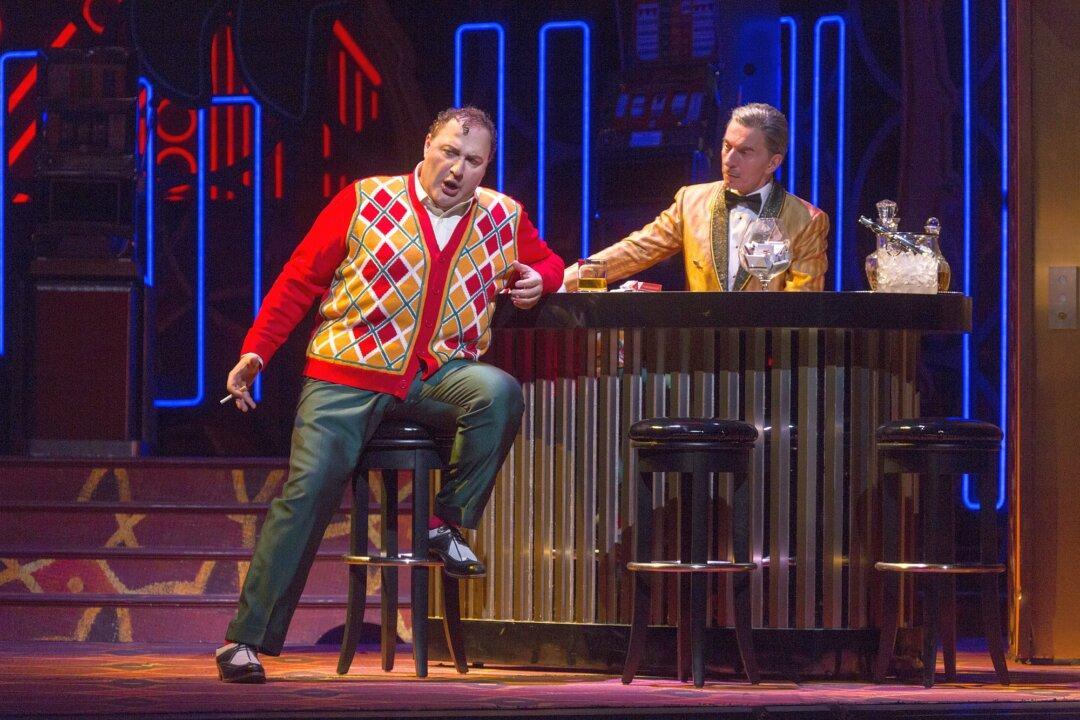NEW YORK—“Rigoletto” is Giuseppe Verdi’s opera based on a Victor Hugo play, “Le roi s’amuse” (“The king takes his amusement”), about the corrupt king of France during the 16th century, François I.
When the opera ran into censorship problems, Verdi and his librettist Francesco Maria Piave moved the locale to Italy and made the amoral ruler the Duke of Mantua. The Metropolitan Opera’s production, under Michael Mayer, updates the action to 1960 Las Vegas and the Duke is a Sinatra-style nightclub singer.
I still have my reservations about director Mayer's nightclub vision for the opera.






